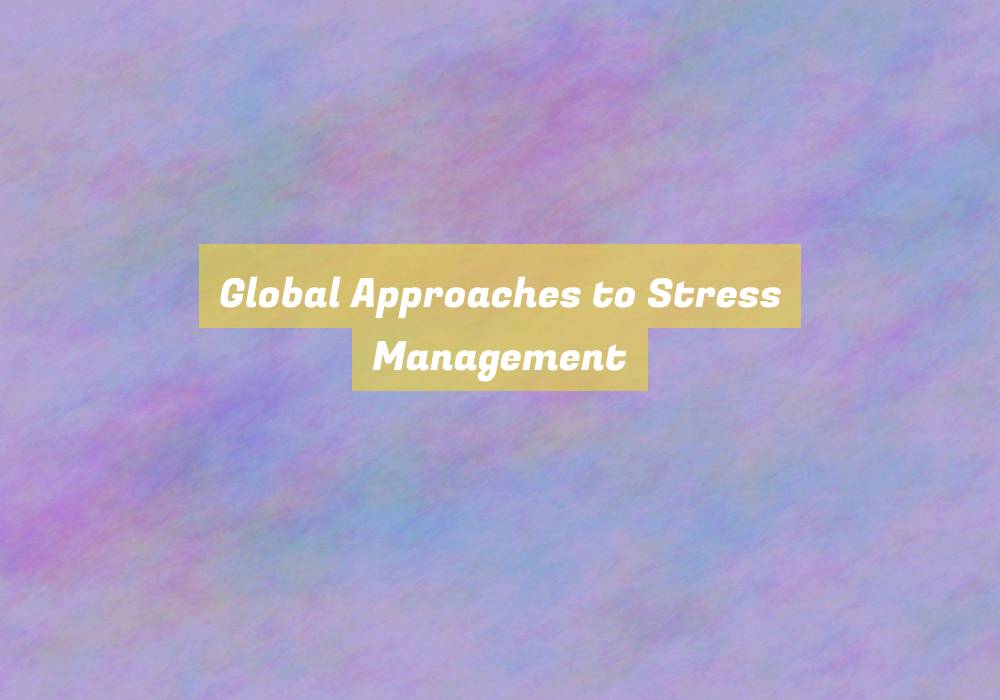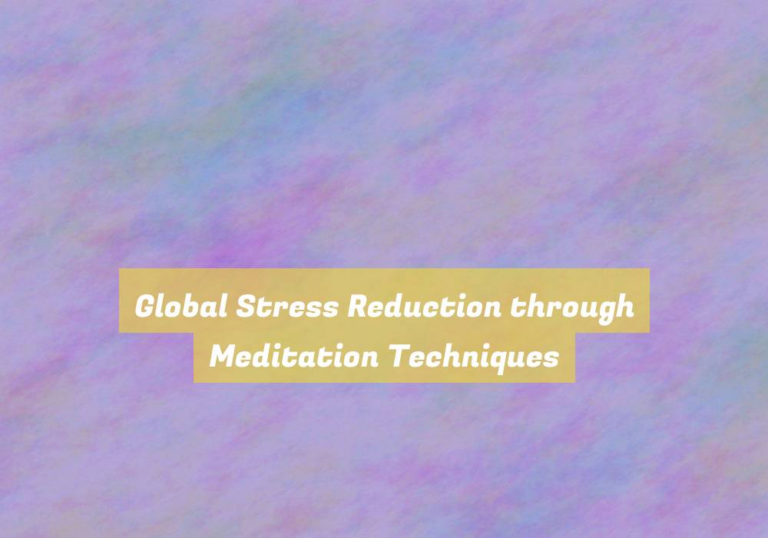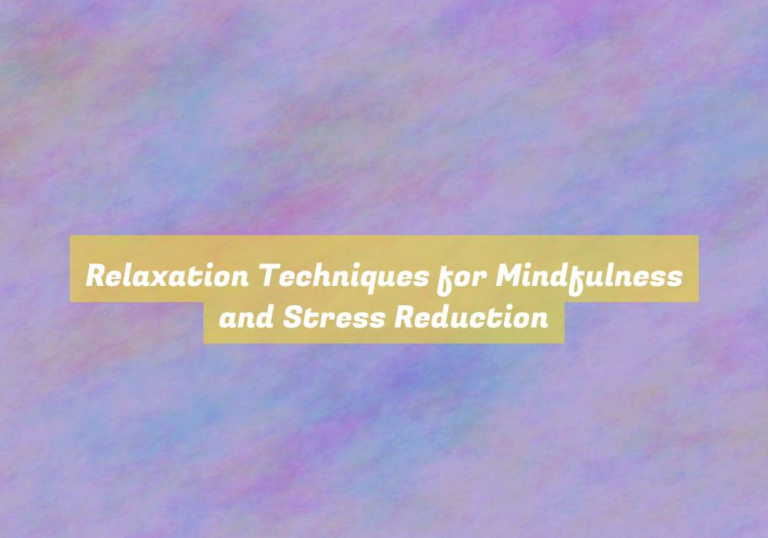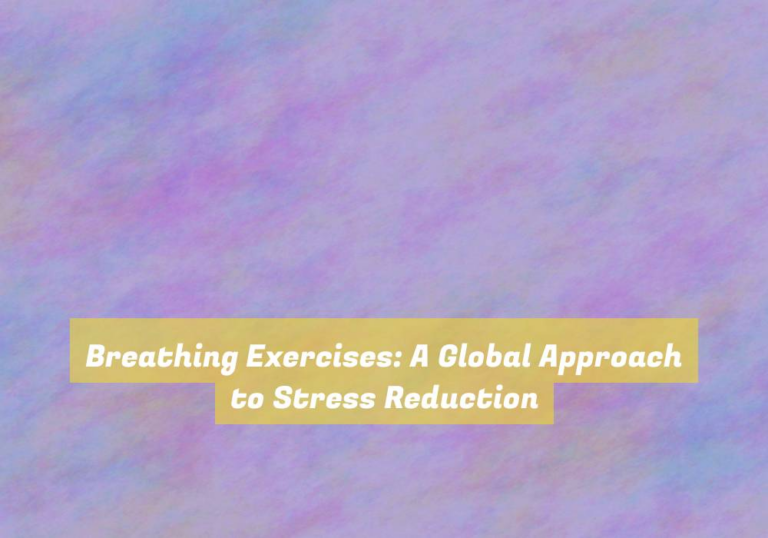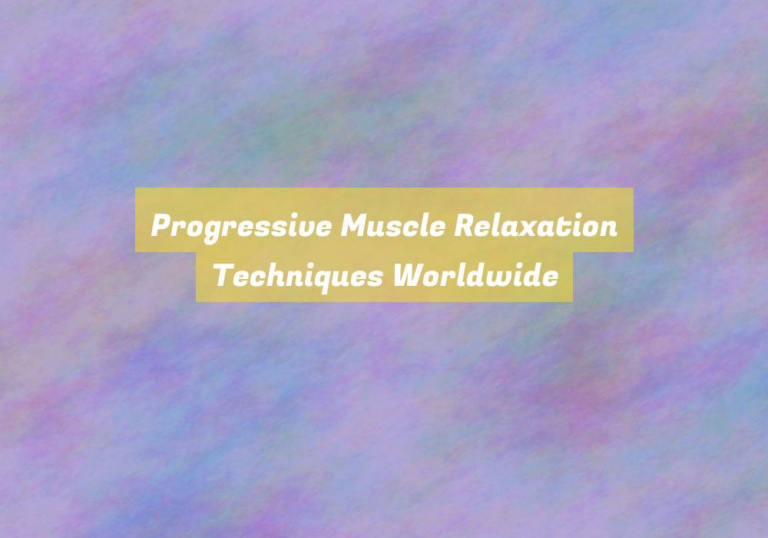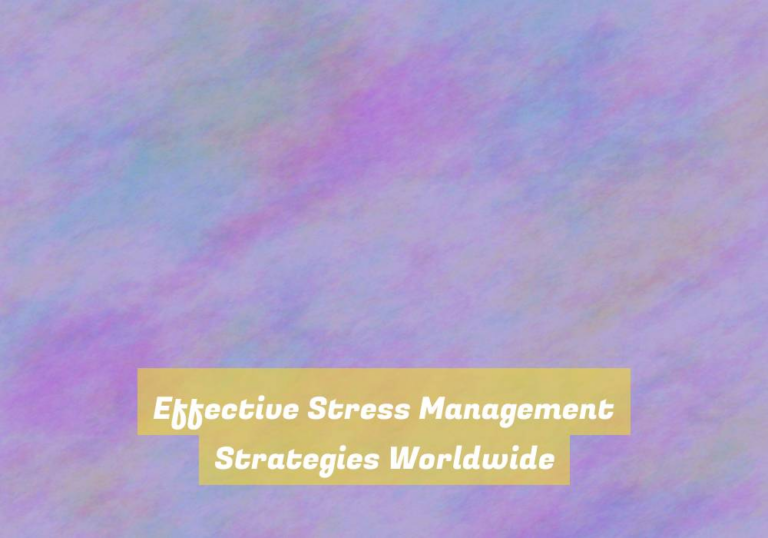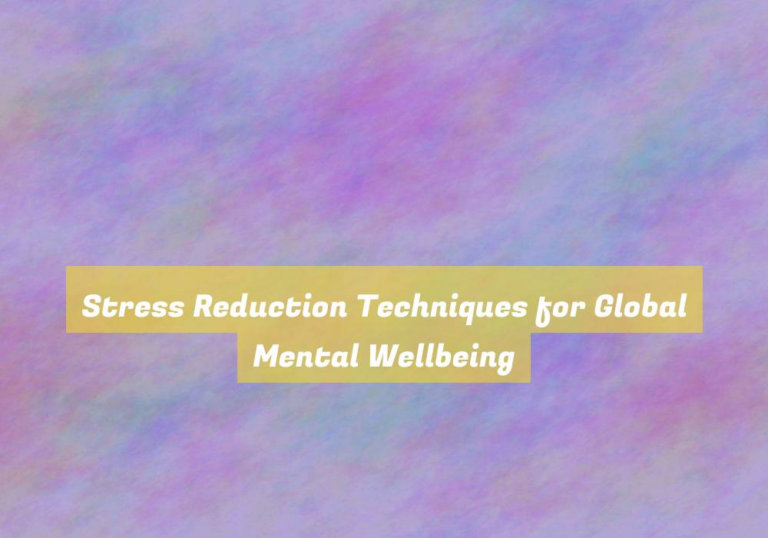Global Approaches to Stress Management
When it comes to managing stress, there are numerous global approaches that have gained attention for their effectiveness. From traditional Eastern practices to holistic Western approaches, and from indigenous and cultural methods to innovative technological solutions, the range of strategies available is diverse and intriguing.
But how do these approaches differ from one another, and which ones might best suit your own needs? LetG??s explore the world of stress management techniques and discover the potential benefits they hold for you.
Traditional Eastern Practices
Traditional Eastern practices, such as meditation and yoga, offer effective methods for managing stress and promoting overall well-being. When you engage in meditation, you create a space for inner peace and mental clarity. By focusing on your breath and being present in the moment, you can let go of the stress and worries that often consume your thoughts. Through regular practice, meditation can rewire your brain to respond to stress in a calmer and more composed manner, enabling you to navigate lifeG??s challenges with greater ease.
Similarly, practicing yoga not only enhances your physical flexibility and strength but also cultivates a sense of harmony between your body and mind. The deliberate combination of movements with breath awareness in yoga can help release tension and elevate your mood. As you flow through the poses, you become attuned to the sensations in your body, fostering a deep sense of relaxation and tranquility.
Holistic Western Approaches
If youG??re looking for alternative stress management methods, holistic Western approaches offer a range of techniques that complement traditional Eastern practices.
Western holistic approaches focus on treating the whole person, including the mind, body, and spirit.
Techniques such as cognitive-behavioral therapy (CBT) and mindfulness-based stress reduction (MBSR) are widely used in Western stress management practices.
CBT helps you identify and change negative thought patterns that contribute to stress, while MBSR teaches you to be present in the moment and cultivate a non-judgmental awareness of your thoughts and feelings.
Additionally, Western holistic approaches often incorporate lifestyle interventions such as exercise, nutrition, and sleep management to address stress.
Regular physical activity, a balanced diet, and sufficient sleep can significantly impact your stress levels.
Moreover, practices like yoga, tai chi, and acupuncture, which have roots in Eastern traditions, are increasingly integrated into Western stress management programs due to their proven benefits.
Indigenous and Cultural Methods
Exploring stress management through indigenous and cultural methods offers a unique perspective on addressing mental and emotional well-being. These methods often emphasize a holistic approach, considering the interconnectedness of the mind, body, and spirit.
Practices such as meditation, traditional healing ceremonies, and connecting with nature are integral parts of many indigenous culturesG?? stress management techniques. For example, in some indigenous communities, storytelling and oral traditions are used to pass down coping mechanisms and resilience strategies through generations. Similarly, cultural practices such as dance, music, and art play a vital role in promoting emotional expression and stress relief.
Furthermore, indigenous and cultural methods often prioritize community support and social connections as essential components of stress management. This contrasts with individualistic approaches common in Western methods.
Innovative Technological Solutions
Incorporating innovative technological solutions into global stress management approaches can offer new avenues for individuals from diverse cultural backgrounds to access effective tools for mental and emotional well-being.
With the increasing accessibility of smartphones and digital platforms, thereG??s been a surge in stress management apps and digital tools. These applications offer features such as guided meditation, mood tracking, and cognitive behavioral therapy exercises, providing convenient and personalized support for users.
Virtual reality (VR) technology is also emerging as a promising tool for stress reduction, offering immersive experiences that can transport individuals to peaceful and calming environments, promoting relaxation and mindfulness.
Additionally, wearable devices equipped with biofeedback sensors can provide real-time data on physiological indicators of stress, empowering individuals to proactively manage their well-being.
Online therapy platforms and telemedicine services further enhance access to mental health support, particularly for those in remote areas or with limited mobility.
The integration of innovative technological solutions into global stress management strategies holds the potential to revolutionize how individuals worldwide address and alleviate stress.
Conclusion
In conclusion, managing stress requires a combination of traditional Eastern practices, holistic Western approaches, indigenous and cultural methods, and innovative technological solutions.
By integrating these global approaches, you can develop a personalized stress management plan that suits your lifestyle and needs.
Remember to prioritize self-care, seek support from others, and explore various techniques to find what works best for you.
With determination and an open mind, you can effectively manage stress and improve your overall well-being.

